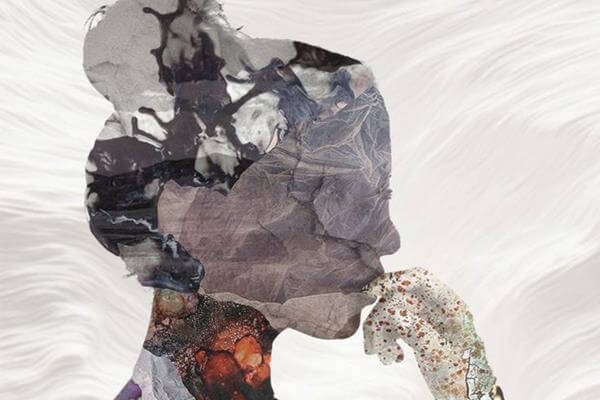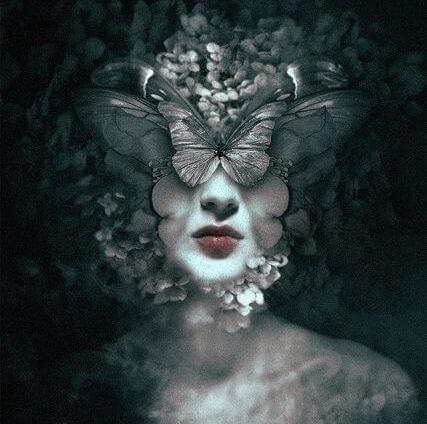Krishnamurti: His Thoughts on Self Knowledge, Fear, and Death


Written and verified by the psychologist Sergio De Dios González
Krishnamurti stood out for his great wisdom. He served as a spiritual guide to many people around the world. His main ideas invited us to start a psychological revolution beginning with ourselves. In fact, Krishnamurti’s reflections help us to deepen our knowledge about who we really are.
The topics that Krishnamurti covers bring us closer to experiencing the process of self-knowledge. It comes from our experience, from within, and not from external influences or theories that we absorb. It invites us to hesitate, question, and remain skeptical of everything that comes our way, including our own experiences, thoughts, ideas, and conclusions.
Self-discovery is a process that lasts from birth until we die. Within this process, we possess the resources to get closer to our ever-changing nature.
It’s normal for us to get used to the deception we live with. As a matter of fact, we don’t really want to know who we are. We long for happiness, balance, security, harmony. However, this is all self-deception if we’re not willing to experience all the different conditions we find ourselves in. For example, if we try to avoid pain, anger, sadness, nostalgia, crying, and anguish, we lose who we are.
We cause our own suffering, living through our attachments and the fear of not being valued by others. In effect, we’re not willing to experience our own human nature.
“Self-knowledge is the beginning of wisdom which is the ending of fear.”
-Krishnamurti-
The nature of thought

Thought serves as a great tool to generate energy, to mobilize us to do what we want. The society we’ve created to live in started from thought. Krishnamurti asked the question, what is thought? He claimed that it’s based on our knowledge. In fact, he suggested that knowledge is constructed of memory and thought.
Knowledge comes through what we experience. This would be the beginning of thought. However, our experiences, knowledge, memory, and thoughts are limited. Thus, everything we create has a limited nature. Our gods, our beliefs, our advances, and our discoveries. Everything has a limited structure, which can always be either expanded upon or refuted.
Thought also creates fear
Fear of being left alone, fear of abandonment, fear of not fitting in with other people, fear of not getting where we want, fear of rejection, of not being accepted, of losing one’s job, fear of what might happen in the future…
All these fears are created by us. They prevent our own development and limit our minds to only thinking about what we’re afraid of. Therefore, we become fearful of life, of thinking about the future, the past, and how to quickly adjust to the environment. Fear arises when we want security. This is what Krishnamurti says:
But if you seek security in a relationship, it becomes an investment in comfort, in illusion; and the greatness of relationship is its very insecurity. By seeking security in a relationship you are hindering its function, which brings its own peculiar actions and misfortunes.
Surely, the function of relationship is to reveal the state of one’s whole being.When insecurity creeps into dependency, as it inevitably does, then that particular relationship is cast aside and a new one is taken on in the hope of finding lasting security; but there is no security in relationships, and dependency only breeds fear. Without understanding the process of security and fear, a relationship becomes a binding hindrance, a way of ignorance. Then all existence is struggle and pain, and there is no way out of it save in right thinking, which comes through self-knowledge.

Fear destroys love
Krishnamurti conveyed the message that it isn’t possible to love when fear is present. Because love has no place alongside fear, just as fear has no place alongside true love. These energies are absolute opposites.
By understanding the origin of fear, we can, in turn, understand the nature of love. Fear is something that’s shared by all human beings. We’re all afraid of death and loss.
We’ve created the fear of death through our beliefs about what death is. However, we don’t know what it is. We haven’t experienced what it means to die. Nevertheless, we’re all actually dying while we’re living. Krishnamurti emphasized this: to live is to die.
Krishnamurti’s message in the video leads us to think about the absurdity of our thoughts. Thoughts that generate fear in us, thus preventing us from living freely.
Can we live by abandoning what we attach ourselves to every day? With this question, we’re invited to think of what it means to live. Furthermore, to think of freeing ourselves from our fears in order to experience love.
“You love fear. The ending of fear is death and you don’t want that to happen. I am not talking about wiping out the phobias of the body. They are necessary for survival. The death of fear is the only death.”
-Krishnamurti-
;
This text is provided for informational purposes only and does not replace consultation with a professional. If in doubt, consult your specialist.








